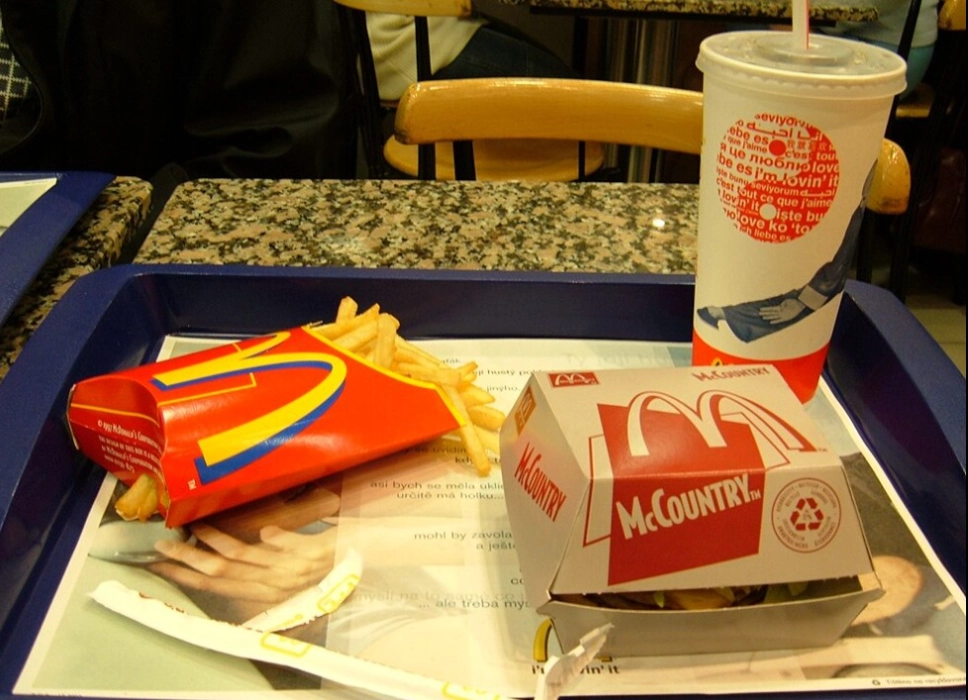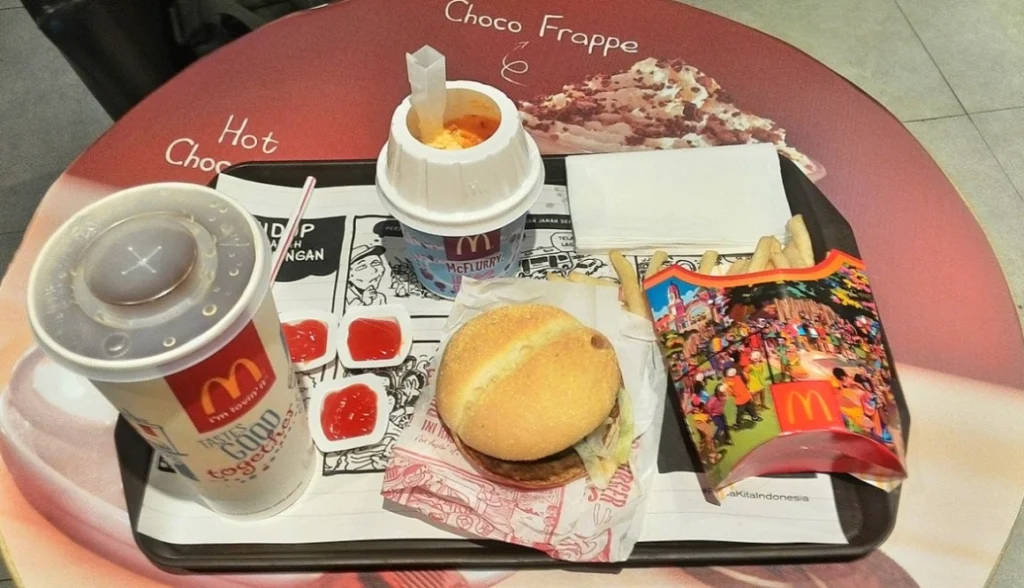The Fast-F00d Crisis: Lamb Weston’s Layoffs Signal Trouble for McDonald’s and the Industry
Explore how Lamb Weston’s recent layoffs signal deeper issues within the fast-food sector as inflation drives consumers away from dining out. Discover the implications for major chains like McDonald’s.
In a significant blow to the fast-food sector, Lamb Weston, the largest producer of french fries in North America, has announced the closure of its Connell, Washington plant, resulting in nearly 400 layoffs.
This decision comes amid a broader slowdown in fast-food sales as consumers grapple with inflation and rising prices. The implications of this closure extend beyond Lamb Weston; they reflect a troubling trend affecting major fast-food chains like McDonald’s and Wendy’s.
The State of Fast Food in America
Economic Pressures
 As inflation continues to strain household budgets, many consumers are re-evaluating their spending habits, particularly when it comes to dining out. A recent survey revealed that approximately 80% of Americans now view fast food as a luxury due to inflated prices.
As inflation continues to strain household budgets, many consumers are re-evaluating their spending habits, particularly when it comes to dining out. A recent survey revealed that approximately 80% of Americans now view fast food as a luxury due to inflated prices.
This shift has led to a decline in restaurant traffic, with Lamb Weston reporting a 2% drop in overall customer visits to fast-food outlets last quarter compared to the previous year. Lamb Weston CEO Tom Werner highlighted these challenges during an earnings call, stating that both restaurant traffic and demand for frozen potatoes remain subdued.
He anticipates this trend will persist through fiscal 2025, prompting the company to take drastic measures such as closing its plant and reducing its workforce by about 4%.
Impact on McDonald’s
 McDonald’s is particularly vulnerable to these economic shifts. As Lamb Weston’s largest customer—accounting for approximately 13% of its sales—the fortunes of McDonald’s are closely tied to those of its suppliers. Recent reports indicate that sales at U.S. McDonald’s locations open for at least a year fell by 0.7% last quarter, driven largely by fewer customers visiting the chain.
McDonald’s is particularly vulnerable to these economic shifts. As Lamb Weston’s largest customer—accounting for approximately 13% of its sales—the fortunes of McDonald’s are closely tied to those of its suppliers. Recent reports indicate that sales at U.S. McDonald’s locations open for at least a year fell by 0.7% last quarter, driven largely by fewer customers visiting the chain.
In response to declining sales, McDonald’s has launched promotional meal deals aimed at enticing customers back into their restaurants. For instance, their $5 meal deal includes a McDouble or McChicken sandwich, small fries, and chicken nuggets. However, even though these promotions have not significantly boosted demand for fries; many customers are opting for smaller portions instead.
Lamb Weston’s Strategic Response
Plant Closure and Layoffs
 The closure of the Connell plant is not just a reaction to current market conditions but also part of a broader strategy to manage production effectively amid changing consumer preferences. The plant represented only 5% of Lamb Weston’s total capacity but was deemed inefficient given the current oversupply situation.
The closure of the Connell plant is not just a reaction to current market conditions but also part of a broader strategy to manage production effectively amid changing consumer preferences. The plant represented only 5% of Lamb Weston’s total capacity but was deemed inefficient given the current oversupply situation.
The layoffs affect nearly 400 employees, raising concerns about job security within the industry as economic pressures mount. Despite these cuts, Lamb Weston assures that supply chains for its customers will remain unaffected in the short term.
Future Projections
Looking ahead, Lamb Weston has adjusted its fiscal projections downward by $100 million for 2025, reflecting the anticipated challenges in demand for frozen potato products. Analysts suggest that if consumer trends continue on this trajectory, further adjustments may be necessary across the industry.
Broader Industry Implications
Fast-Food Chains Adapting
The challenges faced by Lamb Weston are indicative of broader issues within the fast-food industry. As consumer dining habits shift towards home-cooked meals due to rising costs at restaurants, chains like KFC and Taco Bell are also feeling the pinch.
They are forced to innovate and adapt their menu offerings while maintaining competitive pricing. The introduction of value menus and meal deals is one strategy employed by these chains to retain customer interest. However, as noted by industry experts, simply lowering prices may not be enough if consumers continue to prioritize home cooking over dining out.
Mental Health and Consumer Behavior
The impact of economic pressures on consumer behaviour goes beyond financial considerations; it also affects mental health and lifestyle choices. Many individuals are experiencing anxiety related to financial stability, which can lead to reduced spending on non-essential items like fast food.
Conclusion: A Call for Industry Resilience
The closure of Lamb Weston’s plant and subsequent layoffs serve as a stark reminder of the challenges facing the fast-food industry amid economic uncertainty. As consumers shift their spending habits in response to inflationary pressures, companies must adapt quickly to survive.
While promotional deals may provide temporary relief for chains like McDonald’s, long-term strategies focusing on quality, sustainability, and customer engagement will be essential for navigating this turbulent landscape. The fast-food sector must prioritize resilience and innovation if it hopes to thrive in an increasingly competitive environment.
